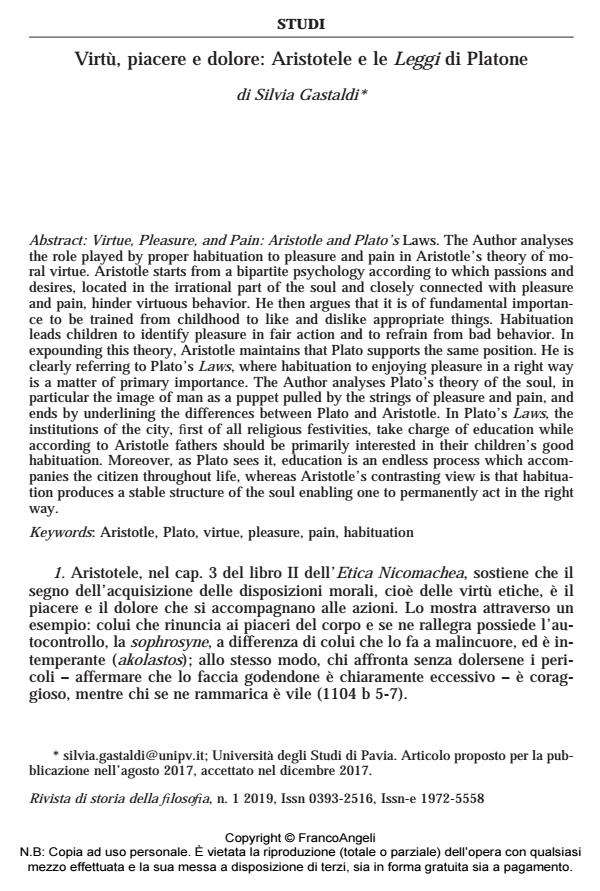Virtù, piacere e dolore: Aristotele e le Leggi di Platone
Titolo Rivista RIVISTA DI STORIA DELLA FILOSOFIA
Autori/Curatori Silvia Gastaldi
Anno di pubblicazione 2019 Fascicolo 2019/1
Lingua Italiano Numero pagine 20 P. 1-20 Dimensione file 79 KB
DOI 10.3280/SF2019-001001
Il DOI è il codice a barre della proprietà intellettuale: per saperne di più
clicca qui
Qui sotto puoi vedere in anteprima la prima pagina di questo articolo.
Se questo articolo ti interessa, lo puoi acquistare (e scaricare in formato pdf) seguendo le facili indicazioni per acquistare il download credit. Acquista Download Credits per scaricare questo Articolo in formato PDF

FrancoAngeli è membro della Publishers International Linking Association, Inc (PILA)associazione indipendente e non profit per facilitare (attraverso i servizi tecnologici implementati da CrossRef.org) l’accesso degli studiosi ai contenuti digitali nelle pubblicazioni professionali e scientifiche
The Author analyses the role played by proper habituation to pleasure and pain in Aristotle’s theory of moral virtue. Aristotle starts from a bipartite psychology according to which passions and desires, located in the irrational part of the soul and closely connected with pleasure and pain, hinder virtuous behavior. He then argues that it is of fundamental importance to be trained from childhood to like and dislike appropriate things. Habituation leads children to identify pleasure in fair action and to refrain from bad behavior. In expounding this theory, Aristotle maintains that Plato supports the same position. He is clearly referring to Plato’s Laws, where habituation to enjoying pleasure in a right way is a matter of primary importance. The Author analyses Plato’s theory of the soul, in particular the image of man as a puppet pulled by the strings of pleasure and pain, and ends by underlining the differences between Plato and Aristotle. In Plato’s Laws, the institutions of the city, first of all religious festivities, take charge of education while according to Aristotle fathers should be primarily interested in their children’s good habituation. Moreover, as Plato sees it, education is an endless process which accompanies the citizen throughout life, whereas Aristotle’s contrasting view is that habituation produces a stable structure of the soul enabling one to permanently act in the right way.
Parole chiave:Aristotle, Plato, virtue, pleasure, pain, habituation
Silvia Gastaldi, Virtù, piacere e dolore: Aristotele e le Leggi di Platone in "RIVISTA DI STORIA DELLA FILOSOFIA" 1/2019, pp 1-20, DOI: 10.3280/SF2019-001001